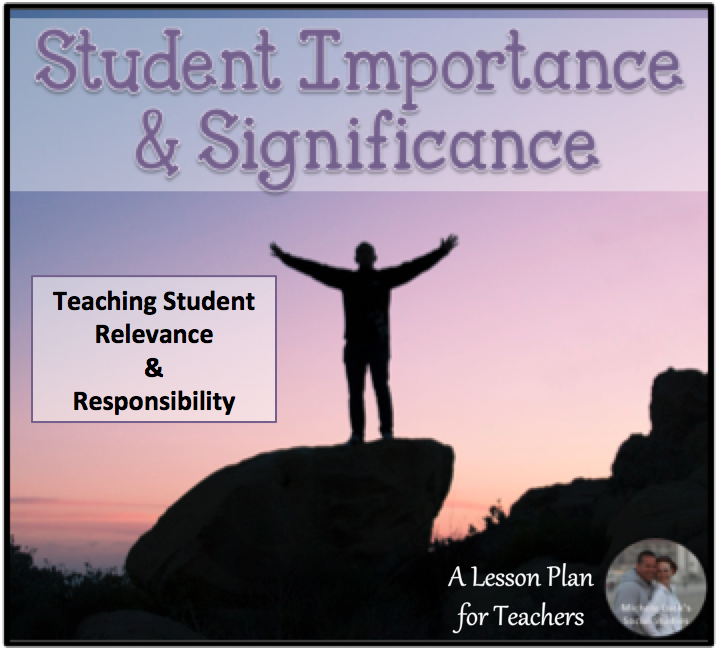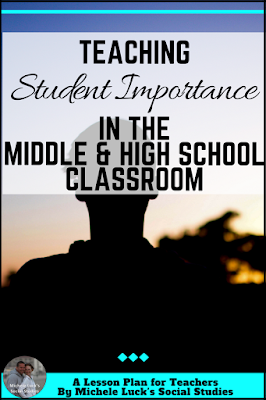students about the important places, events, and people of our world.
While these are all valuable lessons, it is also importance to teach
them of their own importance and significance in our world. Many
may be thinking that I am referencing elementary aged students and the
lessons they learn in the early grades as they adapt to the classroom.
Instead, I think the responsibility falls to the upper grades. It is in
these years that we can teach the students the costly lessons in life, and how to avoid the mistakes made by others throughout history.

Start
with the history or the literature or any other content. Teach them
about those people who have made our world what it is. The heroes, the
activists, the ground-breakers. And then teach them their place in the
world, and how they are responsible for making it a different place than
it is today.
- Lead students to identify their areas of interest.
- Discuss with students the wrongs of the past.
- Identify the problems of today.
- Ask students what they can do to make a difference.
- Challenge students to change the status-quo.
- Encourage students to stand up for their beliefs.
- Allow students to be individuals and to think for themselves.
- Teach them that they are responsible for their world, and that by-standers are never positively significant.
Teach about today. Talk about the hot topics that are on the
news, and challenge students to think about what they would do
differently. And push them to think through topics, and to step away
from the generic responses of generations past. Today is a different
world – and they should be different citizens of that world. It is up
to them to make it change!
Some of my suggested topics or activities to spur discussion:
- Review Important People
and identify what made them important. What could they have done
differently? How could they have changed the world or the future? What
lessons do they teach us about the world we live in now? - Talk about the recent news story of terror. Ask your
students what they would have done? Would they have run from the
scene? Run to help the injured? Are they angry at the terrorists? How
can we prevent these events in the future? - Discuss the latest school shooting. What would prompt
someone to do this type of thing? How would they deal with a situation
like this in our community? Do they understand how someone could do
something like this? Is there any explanation? - Refer to a local shooting. How would they respond in such a
situation? What about their friends or family with them? Are they
sympathetic/empathetic to the shooter? Can they explain why these
things happen? What would they change to prevent these shootings? - Examine the Events of 9/11.
Is this really a battle over religion? Were the terrorists bad
people? Were they following the tenants of their religion or acting as
individuals? How should individuals or nations respond to an attack
such as this one? Should we have gone to war? Against who? Are the
people of the nations where the terrorists are from responsible for
these attacks?
Challenge students to investigate other current events or Significant People in our World.
What is their role? What is our responsibility as individuals? What
should our nation do in response? How do they see the future?
And
then, ask your students to evaluate. What type of person am I now?
What do I do on a small scale that impacts others? How can I help my
community? How can I influence the people around me in a positive way
EVERY day? What can they do to make positive change?
- A fun way to allow students to self-evaluate is to have them Create
Paper Dolls of themselves. Just as they would evaluate a character
from a book or an historic figure, they can detail the characteristics
of their own personality and identify their own contributions.
As the school year comes to an end, challenge your students to
become better people for their futures. Challenge yourself to do the
same!

Happy Teaching!